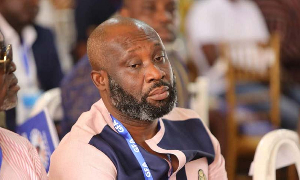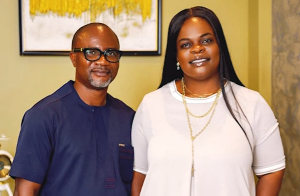In the fall of 2007, just as Dominique Strauss-Kahn was starting his job as managing director at the International Monetary Fund, he asked all divisional heads to give him presentations on their specific areas of focus.
One briefing was on the fund’s activities in Ghana. The fund’s operations in the small west African country were minimal. But Mr. Strauss-Kahn took a keen interest in the woman making the presentation — Piroska M. Nagy, a blond Hungarian-born economist who was 50 at the time and who had worked at the I.M.F. since 1986.
Mr. Strauss-Kahn’s subsequent brief affair with Ms. Nagy, who is married, soon became public — spurring an internal investigation at the fund that would ultimately clear him of having abused the power of his office.
Now, in the aftermath of Mr. Strauss-Kahn’s arrest on charges that include attempted rape, his past conduct is undergoing fresh scrutiny. A person with direct knowledge of Ms. Nagy’s version of what happened and her view of the I.M.F. investigation said that the affair — which was conducted at the World Economic Forum in Davos, Switzerland — was consensual, but that she had felt coerced because Mr. Strauss-Kahn was so forceful and so senior to her, making it hard for her to, in effect, say no.
This person, who declined to be identified because the matter was a sensitive one, said Ms. Nagy had felt that her claim about abuse of power was not taken into account by the board.
The I.M.F., whose investigation at the time concluded that Mr. Strauss-Kahn had shown poor judgment, declined comment. Ms. Nagy, who now works for the European Bank for Reconstruction and Development in London, also declined comment.
Robert J. Smith, a partner at Morgan Lewis & Bockius who led the investigation, said it did take Ms. Nagy’s claims into account. “There was no evidence of coercion or abuse of his power,” he said.
Mr. Strauss-Kahn’s interest in Ms. Nagy materialized soon after her presentation, according to the with knowledge of the matter. He began to call Ms. Nagy in an insistent fashion, asking many questions about Ghana’s economy, this person said.
It soon became clear to Ms. Nagy that Mr. Strauss-Kahn’s interest was more than professional, and he began asking her out and even using increasingly sexual language in his communications, this person said.
William Taylor, a lawyer for Mr. Strauss-Kahn, said Ms. Nagy responded in kind to this form of e-mail communication.
On one occasion, this person recalled, Mr. Strauss-Kahn even sent his secretary to summon Ms. Nagy from the bathroom with a message that the managing director wanted to see her. Ms. Nagy found herself in an increasingly awkward relationship with her ultimate boss, but for a while she put off his advances, the person said. In January 2008, however, she met up with Mr. Strauss-Kahn in Davos and had a very brief affair with him, a version of events that has been publicly accepted by both sides.
Ms. Nagy put an end to the affair after her husband became aware of it. In the spring of 2008, she left the fund, taking advantage of an attractive severance package when the organization cut staff, but also feeling uncomfortable in light of the affair.
After the I.M.F. board heard of the affair, it hired a law firm to investigate it, focusing on whether Ms. Nagy had received any advantages in promotion or pay as a result of her relationship.
The board concluded that Ms. Nagy had received no undue benefit from her relationship, and while it deemed Mr. Strauss-Kahn’s behavior inappropriate — and he apologized — it concluded that he had not abused his power.
In a letter to the board, Ms. Nagy disagreed, saying Mr. Strauss-Kahn had used his power as managing director to become intimate with her.
“I was damned if I did and damned if I didn’t,” she wrote in a letter to the investigators. In the letter, she went on to say that Mr. Strauss-Kahn was “a man with a problem that may make him ill-equipped to lead an institution where women work under his command.”












